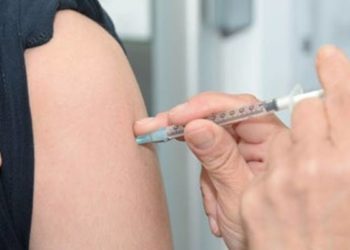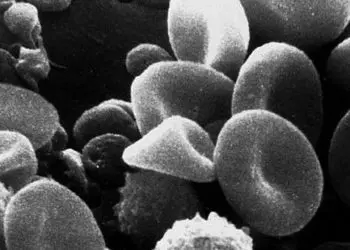Nationwide vaccination campaign with BNT162b2 (Pfizer–BioNTech) mRNA vaccine reports high immunogenicity across all age groups
1. There was a vaccine efficacy of 97.2% against symptomatic COVID-19 infection in individuals at least 7 days after their second vaccine dose.
2. Substantial and consistent declines in COVID-19 incidence corresponded to greater vaccine coverage.
Evidence Rating Level: 2 (Good)
Study Rundown: Beyond clinical trials, there is growing evidence of the practical value of vaccination in reducing the spread of COVID-19. Nationwide surveillance data of mass vaccination campaigns may contribute to our understanding of vaccine efficacy but has yet to be reported. This study uses national surveillance data to study the effects of the first 4 months of a nationwide vaccination campaign against SARS-CoV-2 in the Israeli population. The study found that after two doses of the BNT162b2 (Pfizer–BioNTech) mRNA vaccine, there were significant reductions in the incidence of asymptomatic COVID-19 infections, symptomatic COVID-19 infections, COVID-19 hospitalization and COVID-19-related deaths. Limitations include the lack of randomization and the observational nature of the study such that the observed outcomes cannot be casually linked to vaccination given the potential influence of confounding factors such as exposure. Moreover, the study setting has a unique population demographic and has experienced an equally unique vaccine roll out program. Nevertheless, this is one of the largest scale studies of the real-world vaccine efficacy and further supports the use of vaccinations in addressing COVID-19.
Click to read the study in the Lancet
Relevant Reading: COVID-19 vaccine impact in Israel and a way out of the pandemic
In-Depth [retrospective cohort]: This study utilized national health records of individuals above the age of 16 in Israel from January 24th to April 3rd, 2021. Vaccine efficacy against COVID-19 infections, hospitalizations, and death was evaluated in fully vaccinated individuals, defined as being at least 7 days after their second dose of the Pfizer vaccine. The unvaccinated control group was defined as those in the national registry who had not received any vaccine doses and had not experienced a previous infection. By the end of the study period, 4,714,932 of 6,538,911 (72%) individuals aged 16 years or older were fully vaccinated. Analysis was conducted by employing a negative binomial regression model with outcome adjustment age group, sex, and calendar week of vaccination. Vaccine effectiveness was determined to be approximately 95.3% (95% CI 94.9-95.7%) against infection, 97.0% (95% CI 96.7-97.2%) against symptomatic infection, 97.5% (95% CI 97.1-97.8%) against severe hospitalization, and 96.7% (95% CI 96.0-97.3%) against death. The incidence rate of SARS-CoV-2 infections was 91.5 per 100 000 person-days in unvaccinated individuals compared to 3.1 per 100 000 person-days in vaccinated individuals aged 16 years or older. Overall, increases in cumulative vaccine coverage corresponded to reductions in the 7-day daily moving average of incident SARS-CoV-2 infections across all age groups.
Image: PD
©2021 2 Minute Medicine, Inc. All rights reserved. No works may be reproduced without expressed written consent from 2 Minute Medicine, Inc. Inquire about licensing here. No article should be construed as medical advice and is not intended as such by the authors or by 2 Minute Medicine, Inc.







